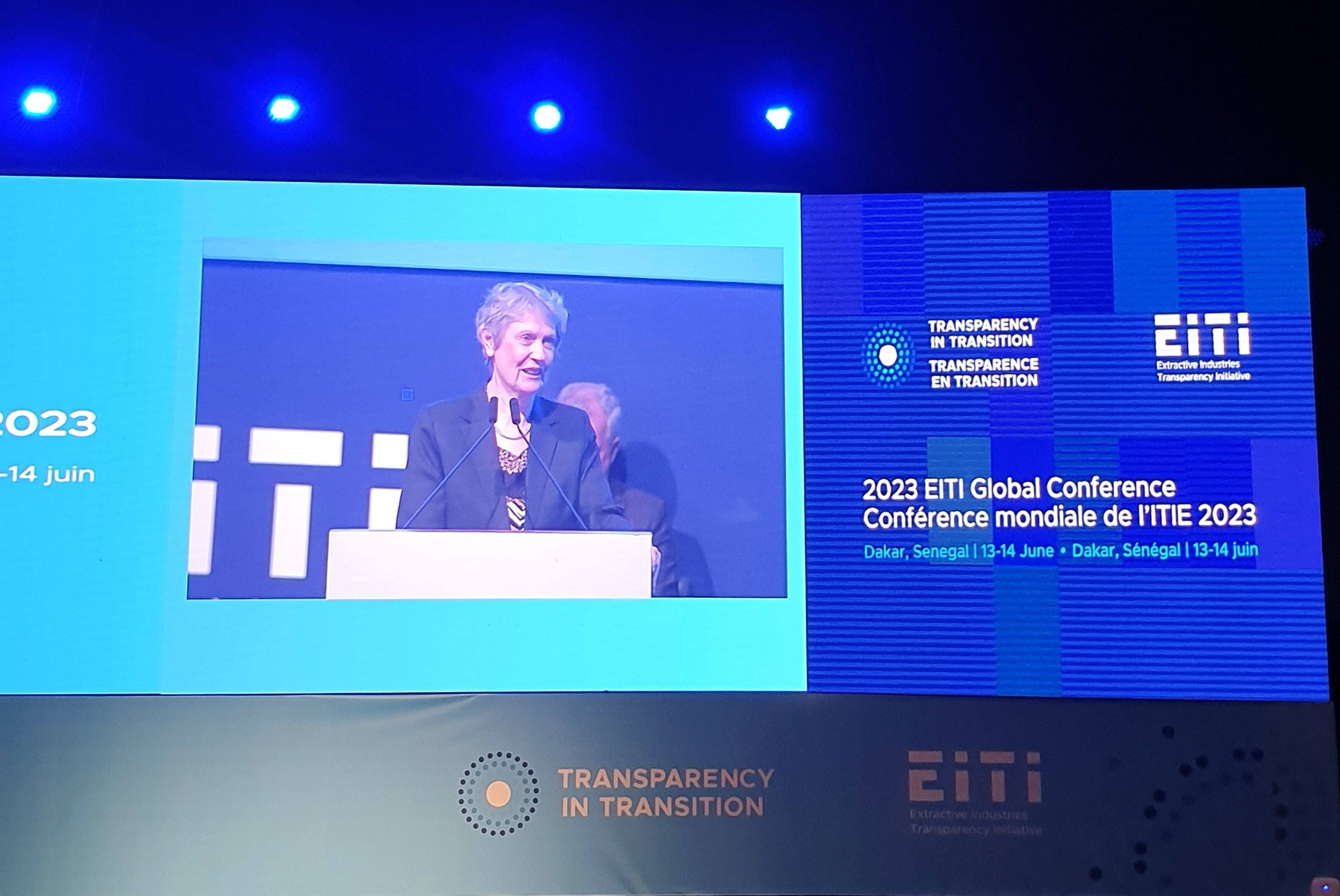2023 EITI Standard: strengthened requirements on beneficial ownership transparency

Helen Clark, Chair of the Board of the EITI, speaking at the EITI Global Conference in June 2023
Today the Extractive Industries Transparency Initiative (EITI) launched the 2023 EITI Standard at its Global Conference in Dakar, Senegal.
Open Ownership welcomes the strengthening of EITI requirements on beneficial ownership transparency. Notable changes are:
- A new requirement to request full disclosure of beneficial ownership by politically exposed persons (PEPs), regardless of their level of ownership. This is intended to ensure that any amount of ownership by PEPs is publicly disclosed, and if implemented effectively, will act as an important mechanism to detect conflicts of interest, for example in the awarding and management of licences.
- The Standard now encourages EITI implementing countries to adopt a threshold of 10% or lower for beneficial ownership reporting. In extractives, a high-risk sector for corruption, it has long been acknowledged that low thresholds are important for understanding ownership, for example of a small percentage stake in a very large extractives company.
- Requirements for information to be disclosed when state-owned enterprises (SOEs) hold beneficial ownership or control. The Standard now specifies the key information that is required: the name of the state, level of ownership, and detail about how ownership or control is exerted. Given the prominent role of state-owned enterprises in the extractive sector, when combined with the EITI requirement on PEP disclosure, this represents a significant strengthening of the potential for the EITI Standard to deliver anti-corruption impact. Requirement 2.6e) also encourages SOEs to disclose beneficial ownership information for their agents, intermediaries, suppliers or contractors.
- The Standard now contains additional requirements to support the disclosure of full ownership chains where beneficial ownership is held indirectly. This comprises a new requirement to disclose the legal ownership of entities as well as beneficial ownership, and is coupled with an encouragement for companies to disclose their ownership structure and full ownership chain. Open Ownership has documented several corruption cases in the extractive sector and beyond, in which understanding the full ownership chain of companies was important to initiating or progressing an investigation.
- Finally, the Standard now encourages the EITI multi-stakeholder groups to review the comprehensiveness and reliability of beneficial ownership information disclosed through stock exchange filings for listed extractives companies, although it does not require any action if the data is not found to be reliable. This remains an issue for actors wishing to understand ownership and control in listed companies in the extractive sector, as in practice there is wide variation in the availability of information from different stock exchanges.
Together, these new developments in the 2023 EITI Standard signal the continued strengthening of the ambitions of the EITI and its work to embed beneficial ownership transparency as a key anti-corruption mechanism in the extractive sector.
The EITI Global Conference taking place in Dakar, Senegal this week, is themed “transparency in transition”, and these updates to the EITI Standard can signal a pathway for greater transparency and accountability in the energy transition.

